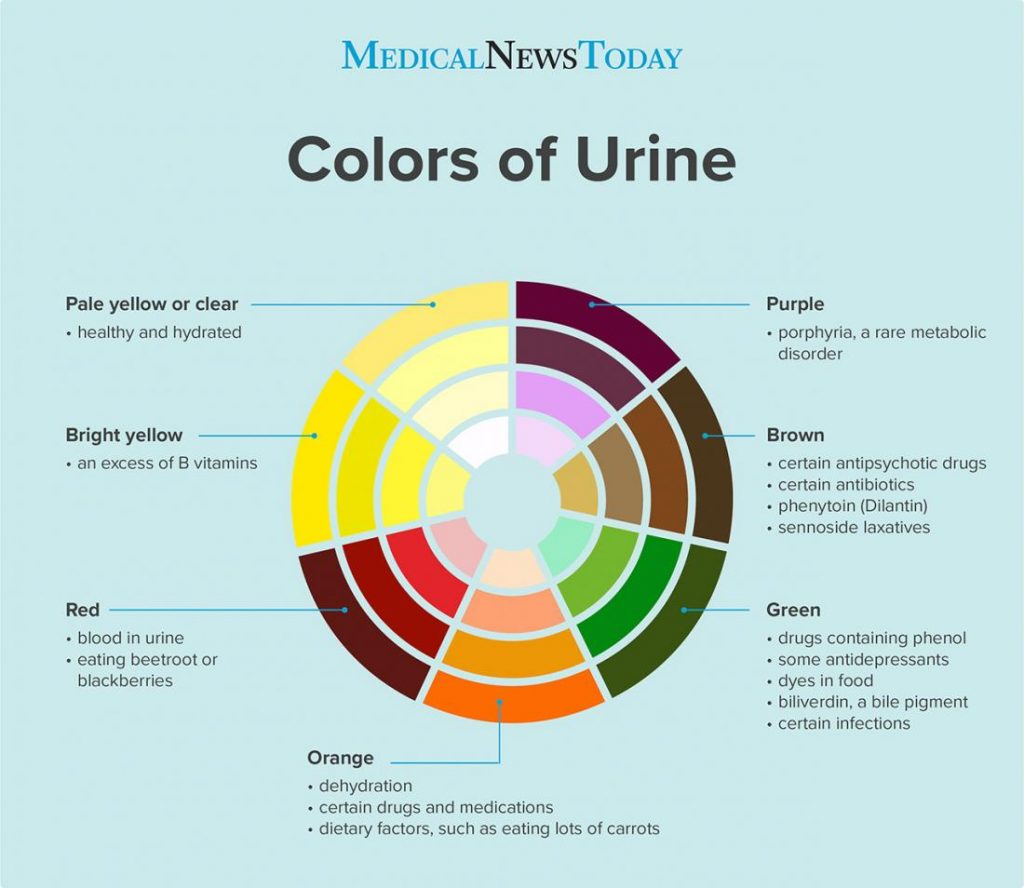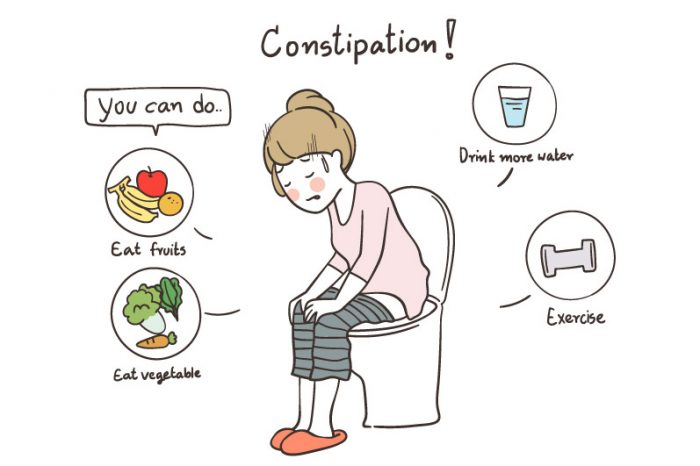The body loses a large number of fluids daily through sweat, urination, and even breathing, which are among the main factors leading to dehydration.
Today, in this article, we’ll discuss some of the common signs of dehydration and the best ways to maintain a healthy fluid balance.
What happens when the body becomes dehydrated?
Did you know that the human body is able to survive for up to three weeks without food, but it only lasts for three days without water? This alone should give you an idea of how important water is to our overall health and well-being. Mild forms of dehydration are still a common problem and can affect the body in several ways. Symptoms of dehydration are difficult to identify easily because they may resemble other signs of the disease. Here are the main symptoms of dehydration:

1 – Change the color of urine
One of the simplest ways to find out if the body is dehydrated is by checking the color of urine. The kidneys rely on a constant flow of fluids to efficiently flush out toxins. The more water we drink, the less toxins will appear in the urine. If your urine is dark in color, this is a sign that the toxins are more concentrated, which means that you are not drinking enough fluids, which leads to the accumulation of bad toxins in the body, which affects the bladder and makes you more susceptible to urinary tract infection, cystitis and other diseases . If left untreated, these problems can progress to kidney damage.
2- Constipation
Symptoms of constipation are never pleasant and can be triggered by a variety of factors, including dehydration. Just like the kidneys, your digestive system relies on a steady fluid intake, and not drinking enough fluid makes stools dry and difficult to pass, leading to difficult symptoms of constipation. This is why gastroenterologists always recommend that people drink plenty of water and fluids during a bout of constipation.

3 – Fatigue
Dehydration can affect the levels of an important amino acid the body needs to produce melatonin, the sleep hormone. This means that not drinking enough water may cause sleep problems that later lead to fatigue during the day.
4 – Dizziness
Dizziness can be an annoying symptom, but it is often associated with a lack of fluid in the body. Dehydration affects blood pressure, which means that the brain is not receiving enough water and struggling to get the oxygen supply it needs. This can make you feel dizzy.
5- Blood pressure
Dehydration affects blood pressure because when the body lacks adequate fluid, the brain sends a signal to the pituitary gland to begin producing the chemical vasopressin. This chemical causes blood vessels to narrow, which increases blood pressure.

6 – Impaired focus
Difficulty concentrating is another sign of dehydration and is like a symptom of exhaustion. It occurs as a result of your brain reacting to an insufficient amount of fluid. If you suffer from low energy levels, dizziness, and blood pressure fluctuations, this can naturally affect cognitive function, but what is frightening is its ability to affect your mental abilities.
7 – Headache
If you suffer from fatigue or poor concentration, feeling a headache seems like a natural addition to this group of symptoms. Cuttings are made up of 7 3 % water. Not getting enough fluid leads to a shrinkage in the brain, meaning that the brain moves away from the skull, causing pain and discomfort.
8 – Mood swings
Many health problems can cause mood swings, such as fatigue, sleep deprivation, and PMS symptoms. Dehydration also causes mood swings due to a poor flow of blood and oxygen to the brain. Some experts also believe that an imbalance in electrolytes like magnesium and potassium, which often occurs during a dry spell, may also be the cause.
9 – Hunger
Feeling thirsty is a clear signal to drink more water, but feeling hungry may also be a less subtle indication of the need to increase fluid levels in the body. Why does dehydration cause you to feel hungry, not thirsty? When dehydrated, the brain does not function properly and things can get confused in the hypothalamus (the area of the brain that regulates thirst and appetite). This means that instead of feeling the urge to drink water, you can’t stop thinking of a bag of chips or a sandwich. Although you can get a little fluid from your food, it is not sufficient to rehydrate your body.
10 – Heart palpitations
Heart palpitations is another troubling symptom that is not immediately related to dehydration. It is not one of the most common side effects, and it usually only occurs when dehydration lowers blood pressure. This means that your heart will then have to work harder to pump blood through the body, which may cause an abnormal heartbeat.
11 – Muscle cramps
When it comes to muscles and joints, adequate fluid intake is pivotal. Your muscles depend on a steady and constant flow of blood and nutrients to function properly, but if you don’t drink enough water it may affect blood flow. The body also loses essential minerals such as potassium and calcium during a dry spell, and as a result, it can cause cramps and muscle spasms.




![The Top & Most Popular Seafood Bucket Restaurants in Dubai for you [Never Miss]](https://uae24x7.com/wp-content/uploads/2020/09/8-seafood-in-a-bucket-scaled-e1600739237403.jpg)
![Procedures for Renewing the Driving License in Abu Dhabi [3 Simple Steps]](https://uae24x7.com/wp-content/uploads/2020/07/Capture-9-e1595666454466.jpg)





